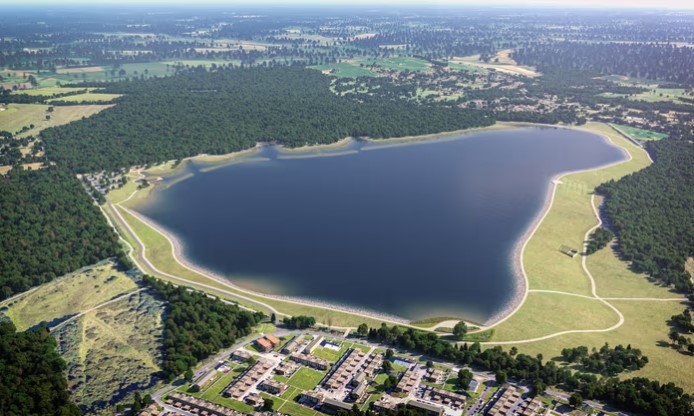
£1.2 Billion Plan to Convert Sewage Waste into Drinking Water Criticized as a ‘White Elephant'
Southern Water Aims to Protect Chalk Streams Amid Environmental Concerns
Southern Water has unveiled a £1.2 billion initiative to recycle sewage wastewater into drinking water, a move branded by critics as an environmental hazard and an unnecessary extravagance. This scheme, proposed for Havant in Hampshire, intends to treat wastewater and channel it into a nearby reservoir to supplement water supplies during drought periods. This would alleviate the extraction pressure on the rare chalk streams of the Test and Itchen rivers.
The project marks the UK's first attempt to use recycled water from sewage to bolster a reservoir. While international regulators endorse effluent recycling as a safe and plentiful water source, local campaigners argue for more eco-friendly alternatives.
Southern Water, previously fined millions for polluting Kent, Sussex, and Surrey waters, faces further scrutiny. Ofwat, the water regulator, recently announced a proposed 44% increase in annual bills for Southern Water customers by 2030.
Scheduled to provide up to 90 million litres of drinking water daily by 2034, the company plans to apply for a development consent order next year, promising continuous flow for taps and rivers. However, environmental experts like Tracey Viney criticize the scheme, advocating instead for rainwater storage solutions. Former Southern Water director Bill Cutting also opposes the costly project, suggesting it is more suited to water-scarce regions rather than the UK.
The Havant Thicket reservoir, a collaboration between Southern Water and Portsmouth Water, is the UK's first major reservoir in over three decades, with a capacity of 8.7 billion litres. Despite its scale, critics emphasize Southern Water's significant daily water loss due to leaks, urging the company to focus on reducing leakage.
Residents initially informed that the reservoir would be winter-fed by underground springs now learn it may be supplemented with recycled effluent, purified through reverse osmosis. This energy-intensive process will see purified water mixed with spring water, while the contaminated byproduct is discharged into the sea.
Community leaders express concerns over potential groundwater contamination and marine ecological impacts from this discharge. Bob Comlay of the Solent Protection Society labels the project a "vanity project" and warns of its resemblance to an underused Thames Water desalination plant.
Southern Water's water director Tim McMahon defends the project, citing the urgent need to meet rising water demands and protect Hampshire's chalk streams. With predictions of requiring 2.5 billion extra litres of water daily by 2050, McMahon stresses the importance of creating a reliable new water source.
Southern Water asserts that environmental impacts are being thoroughly investigated. Bob Taylor of Portsmouth Water and Paul Hickey of the Regulators' Alliance for Progressing Infrastructure Development highlight the project's transparency and established safety of water recycling technology. They emphasize the rigorous planning process required before the scheme's approval.